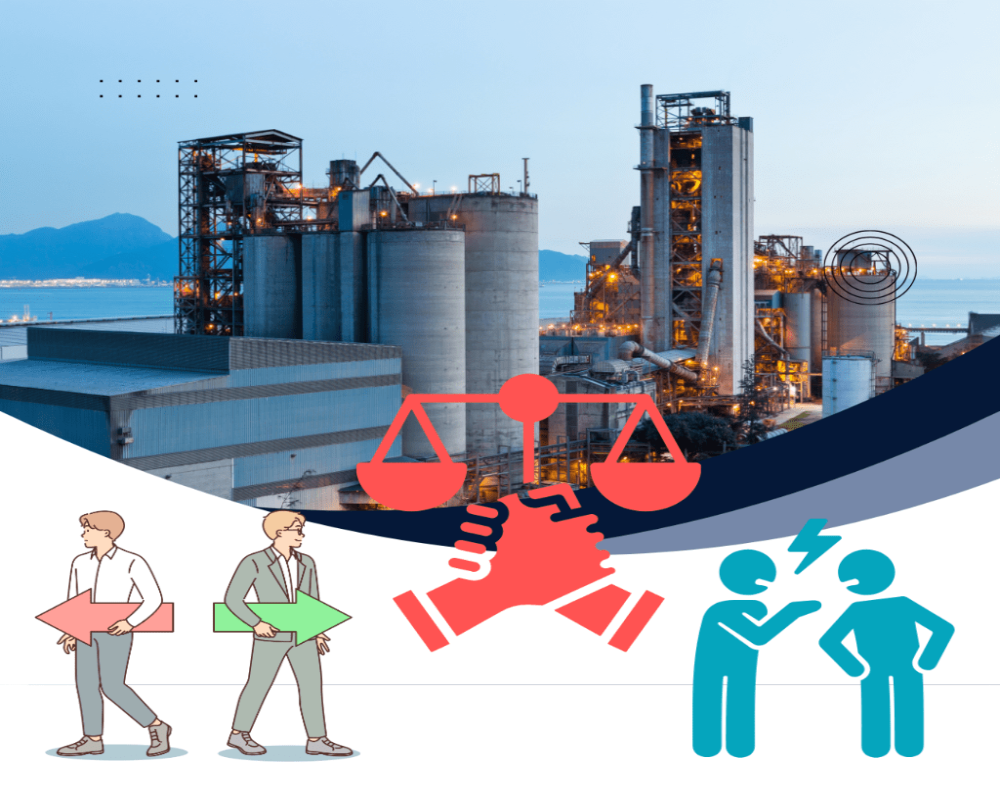Introduction
Fair industrial agreements are essential for maintaining transparency, trust, and long-term collaboration between stakeholders in large-scale industrial transactions. Whether it’s a land acquisition, a build-to-suit contract, a lease agreement, or a joint venture, fairness ensures that all parties receive equitable treatment and mutual benefits. Fair agreements help prevent disputes, encourage compliance, and contribute to project sustainability. To establish fairness, the terms of the agreement must be clearly defined, legally sound, commercially balanced, and aligned with operational realities. Below are key conditions that contribute to creating fair and enforceable industrial agreements.
1. Clarity of Roles and Responsibilities
A fair industrial agreement must clearly outline the roles, duties, and obligations of all parties involved. This includes details about who will be responsible for construction, maintenance, compliance, utilities, staffing, or financial contributions. Clarity reduces operational confusion and ensures accountability throughout the project lifecycle.
2. Mutual Consent and Voluntary Participation
All agreements should be entered into freely by both parties without coercion or undue pressure. Mutual consent is a cornerstone of fairness. A fair negotiation process that respects each party’s interest, pace, and concerns leads to more sustainable and dispute-free agreements.
3. Equitable Risk Sharing
Risks related to construction delays, regulatory approvals, environmental issues, and financial liabilities should be fairly distributed. Neither party should bear an undue burden. Shared responsibility clauses ensure that both sides are committed to mitigating risks together and that no one party is unfairly exposed.
4. Transparent Pricing and Valuation Methods
Pricing in industrial agreements—whether rent, purchase price, or service fees—must be based on transparent valuation methods. Using third-party assessments, market benchmarking, and cost breakdowns ensures that the financial terms are justifiable and reflect true asset value or service effort.
5. Realistic Timelines and Performance Milestones
Timelines for project execution, financial payments, or deliverables must be reasonable and reflect ground realities. Including performance-based milestones allows both parties to track progress and build trust incrementally, with flexibility to adapt in case of genuine delays.
6. Inclusion of Regulatory Compliance Terms
Fair agreements must comply with all applicable laws, including land use, environmental, labor, safety, and tax regulations. Compliance responsibilities should be clearly assigned, and both parties must commit to maintaining legality throughout the duration of the agreement.
7. Defined Payment Terms and Cash Flow Arrangements
To ensure fairness in financial dealings, payment schedules should be based on agreed milestones, with clear terms regarding advance payments, retention clauses, escrow arrangements, or penalties for delays. Flexibility in structuring payments can also support the cash flow needs of both parties.
8. Rights to Access and Supervision
In industrial developments, fair agreements allow both parties reasonable access to inspect, supervise, or monitor work progress or operational performance. These provisions reduce the risk of hidden defects, miscommunication, or non-compliance with agreed standards.
9. Balanced Termination Clauses
Termination rights should be fair and reciprocal. The conditions under which the agreement can be terminated, the notice period, refund policies, and dispute remedies should be well-defined. This protects both parties in the event of non-performance or unforeseen challenges.
10. Fair Indemnity and Liability Provisions
Indemnity clauses must not be one-sided. Each party should be liable only for damages or losses resulting from their own actions or negligence. Caps on liability and clearly defined indemnity periods create fairness and legal protection for both sides.
11. Dispute Resolution Mechanism
A fair agreement should include a neutral and efficient dispute resolution process. This may include mediation, arbitration, or designated jurisdiction for legal proceedings. The process should be structured to resolve issues quickly, cost-effectively, and without jeopardizing the overall relationship.
12. Confidentiality and Data Protection Clauses
Industrial agreements often involve sharing proprietary or sensitive information. Confidentiality terms must protect the interests of both parties and clearly define how data will be used, stored, and shared, ensuring mutual respect for intellectual property and trade secrets.
13. Provisions for Future Amendments
Industrial projects may evolve over time. A fair agreement should allow for modifications through mutual consent. Clauses enabling renegotiation or amendments ensure the agreement remains relevant and adaptable to future developments or changes in law or market conditions.
14. Environmental and Social Responsibility Terms
Including clauses that address environmental impact, waste management, sustainability goals, and social engagement demonstrates fairness toward communities and regulators. Such provisions are increasingly expected in modern industrial agreements.
15. Post-Completion Support and Transition Terms
Where ownership or operational responsibility is transferred, fair agreements include transition support such as training, documentation handover, or temporary supervision. This ensures continuity and helps the receiving party adapt smoothly to their new responsibilities.
Conclusion
Establishing fair industrial agreements requires thoughtful planning, legal precision, and an empathetic understanding of each party’s needs and limitations. By incorporating clearly defined roles, balanced risk-sharing, transparent pricing, flexible financial terms, and legally compliant frameworks, stakeholders can create agreements that are not only enforceable but also durable. Fairness in industrial deals builds trust, facilitates smooth execution, and lays the foundation for long-term industrial growth and collaboration. In an increasingly complex and high-stakes industrial environment, fairness is not just ethical—it is strategic.
Hashtags
#FairIndustrialAgreements #LaborRights #WorkersJustice #CollectiveBargaining #FairWages #WorkplaceEquity #UnionStrong #EmployeeEmpowerment #NegotiationMatters #WorkplaceRights #SocialJustice #EconomicFairness #LaborSolidarity #EquitableWorkplace #FairLaborPractices #WorkersUnite #IndustryStandards #FairContract #EmployeeVoice #WorkplaceReform


